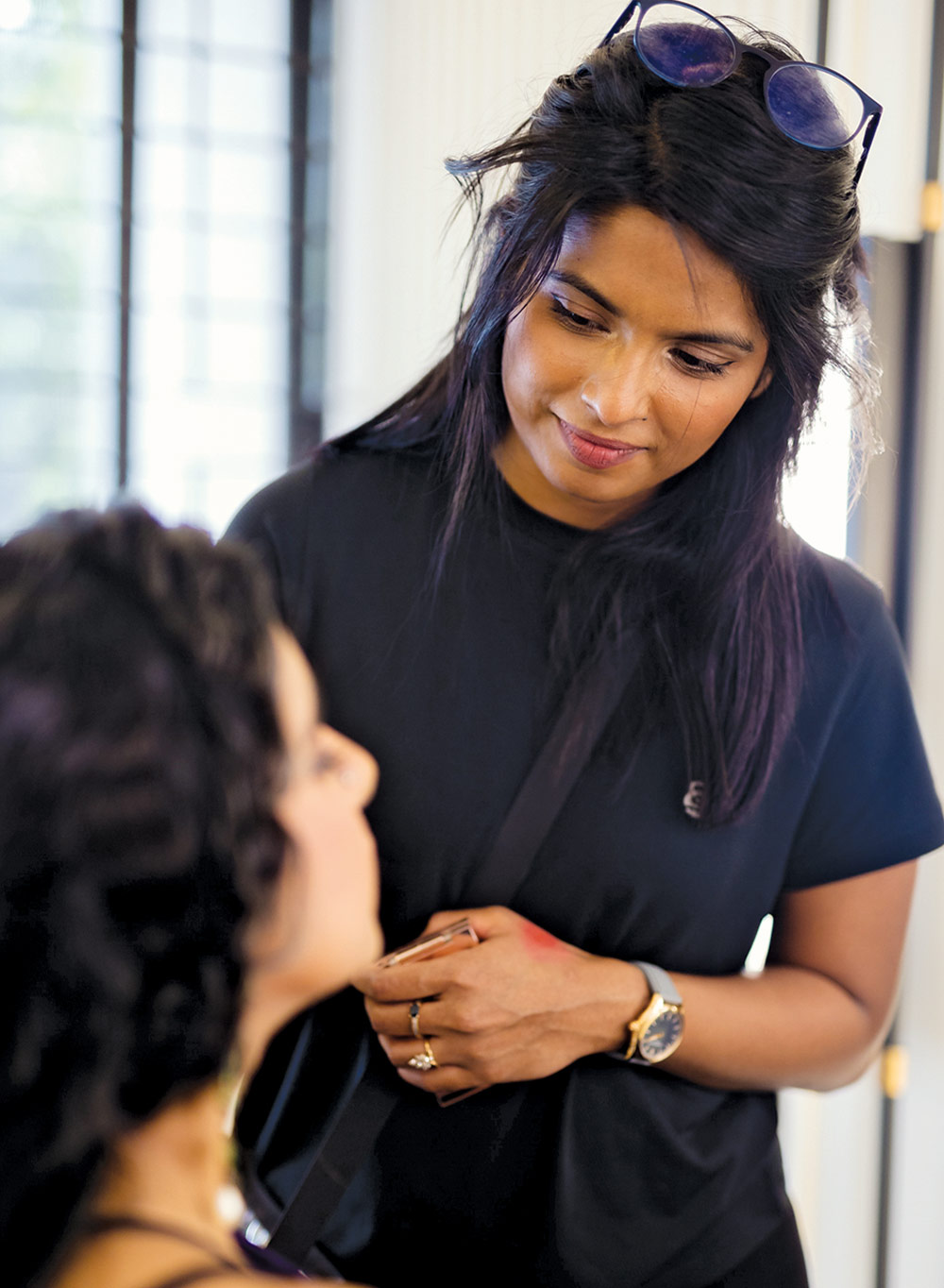More than Makeup
“We’re told not to play in the sun because we’ll get too dark, not to drink tea because it will make you dark, and that you’re not marriage material if you’re too dark,” she says.
Because of this prejudice, skin-lightening products are incredibly popular in Bangladesh (and constitute a multi-billion dollar industry globally). Nashin is working to spread a message of self-acceptance.

Nashin developed an interest in makeup her first year at Swarthmore when she was struggling to adjust to life in the U.S. Applying her makeup brought her peace, and she credits Jennifer Marks-Gold, director of International Student Programs, and Reshma Suraj, who worked in the International Student Center, for encouraging her to show off her makeup artistry online.
As her following grew, she started a beauty-based Instagram while cooped up with COVID-19 early in the pandemic. Eventually, she started thinking, “Maybe I can turn this into something that also touches a little bit on the issue of colorism in Bangladesh.”
One of her social media followers encouraged Nashin to apply for the Democracy, Human Rights, and Labor Grant from the U.S. Embassy and State Department to raise awareness about the issue of colorism in Bangladesh, and she received it. She led eight workshops the following year — in Dhaka, Cox’s Bazar, and Jashore — that served as a safe space for people to share their experiences of colorism.
“They were actually really fun,” she says. “We had food and games. … All the fun and games would loosen people up so that they could finally share what they’re experiences were.” Colorism had a profound effect on many of the women’s lives. One workshop participant was engaged at 15 because she’d been told her whole life that her skin color made her undesirable. She told the group she had regrets about getting married so young, because if she hadn’t, she would have finished her education, says Nashin.
“What’s important to know about colorism, is that it’s not just a personal issue — it is a phenomenon that is best understood as a systematic ailment in society,” says Assistant Professor of Sociology & Anthropology Edlin Veras, who teaches a class called Global Colorism. “It’s not just people feeling ‘bad’ about themselves, it also impacts life chances, including employment opportunities and education attainment.”
Fortunately, the message that brown is beautiful is spreading. The demand for true-to-complexion makeovers has Nashin’s calendar booked months in advance of Bangladesh’s wedding season. She’s partnered with one Dhaka salon that reached out to her, saying, “We want you because what you’re doing is more than just makeup.”
When not teaching makeup skills, Nashin helps run her family’s water treatment and solar power businesses. Because makeup isn’t her only source of income, she has the privilege of refusing to work with salons and beauty companies that push skin-lightening products. She also uses and recommends only cruelty-free products.“Social justice really played a big role in my whole makeup world,” she says. “I have Swarthmore to thank for that.”